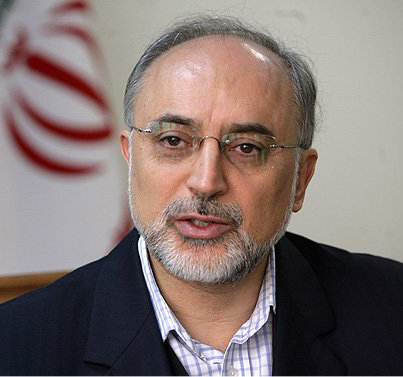Baku, Azerbaijan, Feb. 6
By Umid Niayesh - Trend:
Iran can make some design changes to the Arak heavy water reactor in order to produce less plutonium in the reactor and in this way allay the worries and mitigate the concerns, head of the Atomic Energy Organization of Iran, Ali Akbar Salehi said, Iranian Press TV reported on Feb. 6.
Salehi went on to say that, the heavy-water reactor of Arak is not for the production of plutonium. "This is the wrong way to define this reactor. This reactor is a research reactor. It is for the purpose of producing radio-isotopes and making other tests: fuel tests and material tests," he added.
Iran's heavy water production plant and heavy water reactor which remains under construction is located near the city of Arak.
The Arak Heavy Water Reactor if operating optimally would produce about nine kilograms of plutonium annually or enough for about two nuclear weapons each year. Intermittently, Iran has allowed the IAEA access to the IR-40 reactor at Arak, but in recent years, has not allowed the Agency full access.
Iran has agreed to suspend the installation activity at the reactor based on the Geneva nuclear deal. Weapons-grade plutonium is not produced by the Arak reactor, Salehi said, adding that this reactor will produce about nine kilograms of plutonium, but not weapons-grade plutonium.
"I want to underline this, not weapons-grade plutonium," he added.
He further went on to say that it would take six, seven, eight years before Iran would be able - if it intends to use the plutonium - to extract the plutonium. "Seven to eight years and plus you need a reprocessing plant, which we don't have and we don't intend to construct," he added.
Iran and the P5+1 reached a nuclear agreement on November 24, 2013. Iran has agreed to curb some of its nuclear activities for six months in return for sanctions relief. Iran and the P5+1 group have agreed to implement the agreement starting from Jan. 20.
Under the agreement, six major powers agreed to give Iran access to $4.2 billion in revenues blocked overseas if it carries out the deal, which offers sanctions relief in exchange for steps to curb the Iranian nuclear program.
The U.S. and its Western allies suspect Iran of developing a nuclear weapon - something that Iran denies. The Islamic Republic has on numerous occasions stated that it does not seek to develop nuclear weapons, using nuclear energy for medical researches instead.






